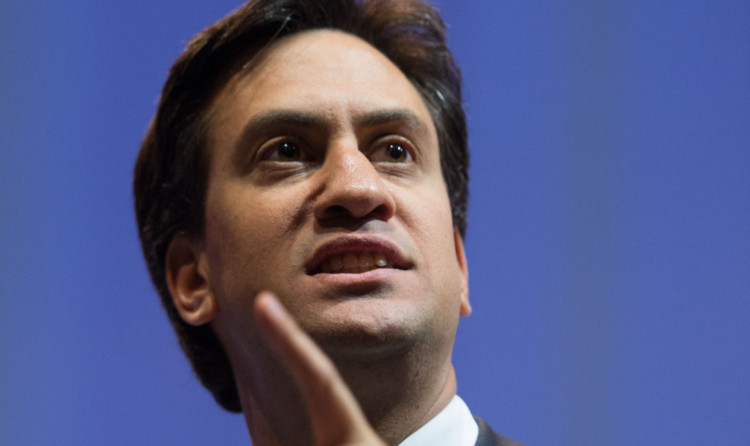Labour leader Ed Miliband said he was “furious” at a Daily Mail profile of his late father which claimed he “hated Britain”.
Mr Miliband stepped up his feud with the newspaper, saying he was “appalled” at the essay on his Marxist academic father and there were “boundaries” about what should be in papers.
The Daily Mail has now carried a piece by Mr Miliband defending his father, but it was published alongside the reprinted essay on Ralph Miliband and a leader column attacking the “tetchy and menacing” response from the leader of the Opposition.
The paper said it stood by “every word” of its profile of Mr Miliband’s father, who came to Britain as a Jewish refugee and served in the Royal Navy during the Second World War before becoming an academic supporting what the newspaper called “one of the world’s most poisonous political doctrines”.
The Daily Mail also hit out at Mr Miliband’s support for statutory regulation of the press “under which politicians could ultimately decide what appears in newspapers”.
In an interview with the BBC Mr Miliband said: “It’s perfectly legitimate for the Daily Mail to talk about my father’s politics but when they say that he hated Britain I was not willing to put up with that because my father loved Britain, my father served in the Royal Navy, he was a refugee who came here and found security in this country.
“He took great comfort from what this country offered him and I’m speaking out as a son.
“I was appalled when I read the Daily Mail on Saturday and saw them saying that he hated Britain. It’s a lie.
“I’m even more appalled that they repeated that lie today and have gone further and described my father’s legacy as ‘evil’. Evil is a word reserved for particular cases and I was not willing to let that stand.”
A clearly angry Mr Miliband added: “This is not about regulation, it’s about right and wrong and it’s about the way we conduct political debate in this country and I think there are boundaries.
“I think newspapers and people across politics mustn’t overstep those boundaries. It’s not about government or politics stepping in and stopping that happening, it’s about the way we conduct our debate.
“I think this raises an issue about the way we conduct debates in this country.
“But what I’m interested in is defending my father’s good name. And I don’t want the British people to think that my father hated this country because he loved Britain.
“When the Daily Mail not only says that but publishes a photo on their website of his gravestone with a pun about it, saying he was a grave socialist, I’m furious. Because what is political debate coming to in this country when this happens?”
Mr Miliband insisted he was not trying to regulate what was published but added: “I think there are boundaries. There are boundaries for politicians attacking other politicians’ families, there are boundaries for newspapers as well.
“It’s not about regulation, this is not about me trying to regulate what the Daily Mail writes about my father but it is about me saying I think morality and our approach to these things matters and that’s why I have spoken out.”
The controversial essay, first printed in Saturday’s edition of the Daily Mail, questioned what Ralph Miliband, who died in 1994, “really” believed in, adding “the answer should disturb everyone who loves this country”.
The Daily Mail quoted the 17-year-old Ralph writing that the Englishman is a “rabid nationalist” and “you sometimes want them almost to lose (the war) to show them how things are”.
Mr Miliband said he had discussed his response to the piece with his older brother and former leadership rival David, as well as his mother Marion Kozak and “they feel the same way I do”.
A spokesman for the Daily Mail said: “We ask fair-minded people to read our editorial today. For what this episode confirms is that you cannot allow politicians anywhere near regulating the press.
“While we respect Mr Miliband’s right to defend his father – and he has done so in the Daily Mail today – it is worth stressing that Ralph Miliband wasn’t an ordinary private individual but a prominent academic and author who devoted his life to promoting a Marxist dogma which caused so much misery in the world.
“He hated such British institutions as The Queen, the Church and the Army, and wanted a workers’ revolution. Our readers have a right to know that.
“Ed Miliband, the Labour leader, is the leading advocate of statutory controls of the press in Britain under which politicians could ultimately decide what appears in newspapers.
“His father – to whom he constantly refers in his speeches – was a proponent of one of the world’s most poisonous political doctrines under which freedom of expression was crushed and newspapers controlled by governments.”
